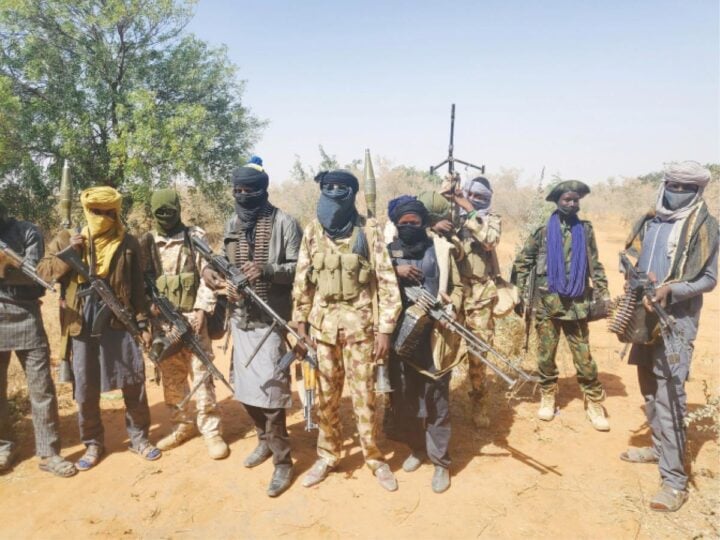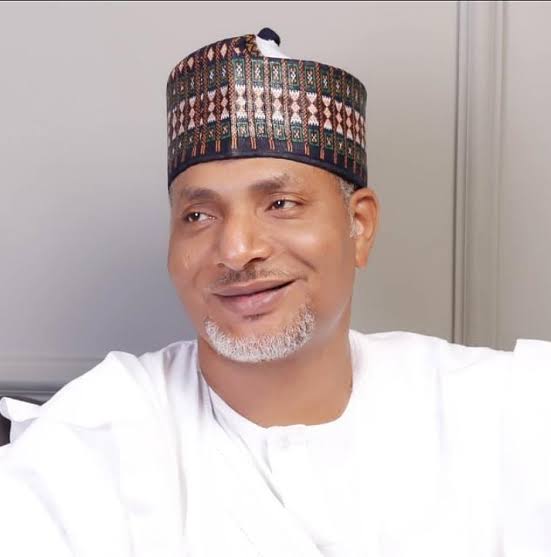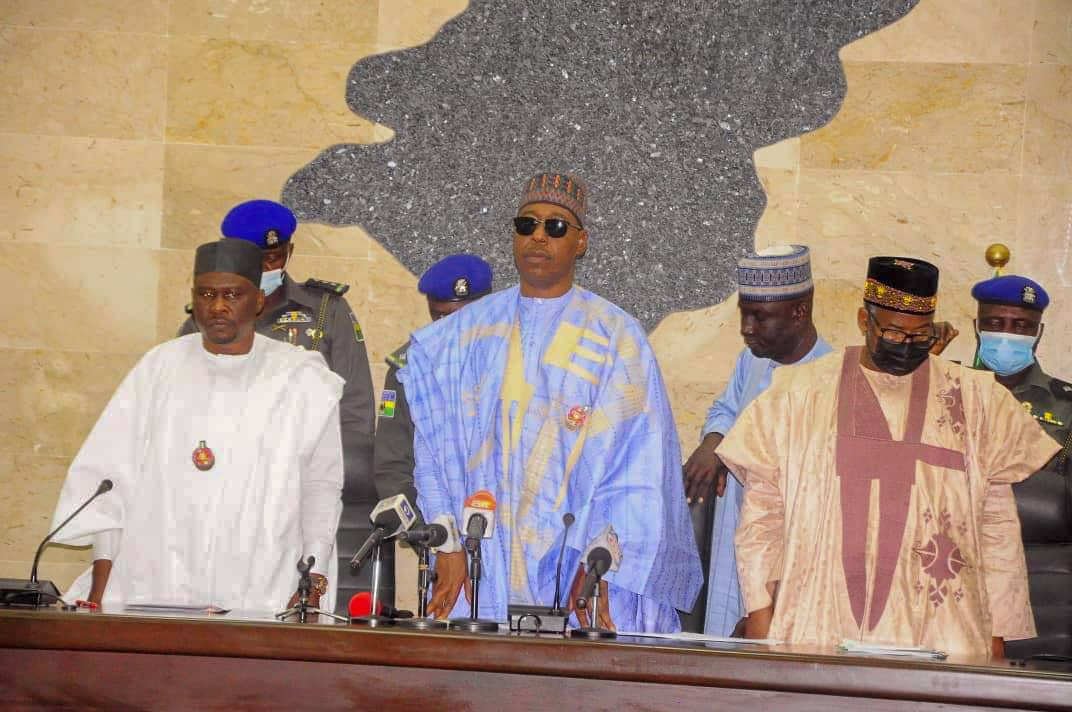BY EMMANUEL ADO
When the blood-thirsty bandits wreaking havoc in the north-west states of the country got officially dressed and documented in their rightful garb as terrorists, Nasir El- Rufai, governor of Kaduna state, had good reasons to gloat or brag. But, like Ray Douglas Bradbury, one of the most celebrated 20th-century American authors, who refused to blow his trumpet in spite of his accomplishments, El-Rufai has bluntly refused to gloat over the belated decision to officially designate bandits as terrorists, years after they have been wreaking havoc on people and livelihoods, mostly across northern Nigeria.
Records show that Governor El-Rufai had consistently championed the cause of proper tagging of the bloodsuckers since 2017, so the security forces would be legally justified to fully unleash military power on them, to curtail their mindless excesses.
In essence, the official enlisting of the bandits as terror groups by the Nigerian government came more than four years late.
Advertisement
So, El-Rufai won’t gloat because so many people, who didn’t have to die, have died as a result of this inexplicable inaction. More tragically, the security situation has become much more challenging than it would have been if the government had acted earlier than now.
Rather than indulge in the luxury of celebration, El-Rufai has since moved on to other pressing issues of the moment, considering the ever-increasing security challenges. He is currently campaigning vigorously for the recruitment of more men and women, the provision of more equipment for the armed forces, the long-overdue establishment of state police, plus increased funding of the security agencies. These are critical factors that need to be addressed if the war on terrorism is to be decisively won.
In one of his submissions, the governor said: “None of the military services, nor other security agencies has been suitably expanded in numbers and equipment for over a decade since the insurgency in the north-east pushed things to a new low. This country does not have enough soldiers, uniformed police and secret police to project State power across its vast swathes, particularly the forests. The limited numbers of boots on the ground aren’t well equipped and are significantly lacking in the technology that can make their limited numbers matter a lot less.”
Advertisement
But El-Rufai’s role, his vigorously waged campaign for the bandits to be properly classified as terrorists, was consistent with his principles. The farsighted perspective on the dimensions of the security challenges informs his various strategies that will help crush the insurgency. The now gazetted outcome stands as a victory of his deep pragmatic conviction over cheap politics and popular grandstanding.
In Kaduna state, which El-Rufai presides over, a special purpose ministry of internal security and home affairs was created in 2019 to manage the challenges of insecurity. To the far-sighted governor, it had become clear as crystal that the security challenge wasn’t going away any time soon. Other impacted states haven’t reacted to the problem like El-Rufai did.
The campaign to take actions in a way not intended comes as a strong rebuttal of the tales by moonlight spurn by El-Rufai’s political detractors, to paint with the undeserved brush of an uncaring governor who even takes side with the bandits. These naysayers have taken delight in spurning utter falsehoods about El-Rufai, evidently with the sole purpose of “de-marketing” him due to the 2023 general election permutations.
On the contrary, it had always been on public records that Nasir El-Rufai felt nothing but disgust toward murderous terror gangs spilling blood in parts of Kaduna and the other states like Zamfara, Katsina. In one public statement on the evil of banditry, he said: “We in the Kaduna state government have always aligned with the declaration of bandits as insurgents and terrorists. We have written letters to the federal government since 2017, asking for this declaration, because it is the declaration that will allow the Nigerian military to attack and kill these bandits without any major consequences in international law. So, we support the resolution by the national assembly and we’re going to follow up with a letter of support, for the federal government to declare these bandits and insurgents as terrorists so that they will be fair game for our military. This is the view of the Kaduna state government.”
Advertisement
Yet, a man with such strong antagonistic views of banditry, without any shred of evidence, has been accused of sponsoring the bandits.
El-Rufai’s strident campaign for mass recruitment of 774,000 men and women into the armed forces is a lesson drawn from the previous military operations in Kaduna state. The military operation wasn’t sustained, largely due to a lack of the requisite manpower. Hopefully, the establishment of state police and the deployment of technology in the war against terrorism, like the Kaduna state government has done, will make a great difference.
Based on both experience and foresight, El-Rufai’s submissions that previous security operations in some north-west states spectacularly failed because there weren’t enough boots on the ground, to date, hasn’t been refuted. It bolsters his call for massive recruitment into the military. Clearly, the lack of numbers is solely responsible for the inability of security agencies to launch simultaneous military operations in all the troubled states. So long as there is no new approach to the war, the terrorists will continue to run riot, taking huge tolls on the lives and livelihood of law-abiding citizens.
When Kaduna state launched its military operations, the terrorists easily relocated from Kaduna to Katsina, because that area was quiet. And when a similar exercise began in Katsina, the terrorists shifted base to Zamfara to continue to wreak their havoc unchallenged. They very well know the armed forces cannot sustain meaningful onslaught on multiple fronts at the same time. It’s no secret that the terrorists are very much aware of this inadequacy of the armed forces. This is the reason why they adopted the effective strategy of being very mobile.
Advertisement
There is just no alternative to the military launching simultaneous operations in the seven north-west states and Niger state in the north-central zone. And only massive recruitment will give them that capability.
Any dispassionate and well-meaning person would appreciate and align with El-Rufai’s position. “I call for a consensus between the federal government and the 36 states on an emergency programme of recruitment into the security agencies. Government can change the game significantly by hiring 1,000 volunteering youths from each of the 774 LGAs in the country into the security agencies. This will be a surge in numbers that is unprecedented since the civil war. An influx of 774,000 new boots on the ground will be a significant blow against criminals and an employment boost.”
Advertisement
Let’s cast our minds back to the Iraqi war when the United States of America and the United Kingdom under Tony Blair overthrew the regime of Saddam Hussein. The US strategy involved a deployment of an overwhelming force against the Iraqis, drawing from their Vietnam war experience. They threw everything into the war, from land, air and sea, deploying over 500,000 soldiers and an additional 250,000 troops from other countries, which enabled General Norman Schwarzkopf, commander of operation Desert Storm, to finish off the job in a record six weeks. Though technology played a great role, at the end of the day, it was the men and women on the ground that finished the war.
The Nigerian armed forces’ obvious lack of numbers is what the lousy terrorists have continued to capitalise on, to embarrass everyone, to the extent of exploding into a nationwide problem. The dangerous implication is that the more the crisis lingers, the more Nigerians will doubt the capacity of the Nigerian state to protect them. It will also continue to embolden the terrorists and other armed non-state actors to openly challenge the power of the Nigerian state, in a manner that’s becoming more frightening by the day.
Advertisement
Nigerians definitely don’t deserve the humiliation they are daily being subjected to by the terrorists; the payment of taxes, infringement of their right to free movement guaranteed by the constitution, but which has been rudely constrained by the terrorists, etc. It’s time to listen to El-Rufai who has real firsthand experience in dealing with all manner of security challenges.
About a third of the 23 local government areas of Kaduna state are affected by one form of security challenge or the other. Others are Katsina, Niger and Zamfara states, because of the Kamuku-Kuyambana forest that stretches from Niger state through Birnin-Gwari in Kaduna and across most of the north-west states.
Advertisement
El-Rufai’s call on the military to carpet-bomb the forests, which have provided refuge for the terrorists, was predictably attacked by his opponents, for the sake of it, without putting forward alternative positions. Certainly, carpet-bombing the forests remains an option in the war. Yes, the forests will be destroyed, but after the war, Nigeria can embark on a programme to replant trees. Didn’t Nigeria rebuild the infrastructure destroyed during the civil war?
El-Rufai’s suggestion is not a scorched earth policy, nor an equivalent of Hiroshima (the American devastation of a Japanese city with the atomic bomb in 1945), like some critics have suggested. But there’s no denying the fact that the bombing of Japan helped resolve the conflict.
In El-Rufai’s words: “I’ve always believed that we should carpet-bomb the forests. We can replant the trees after. Let’s carpet-bomb the forests and bomb all of them. There will be collateral damage, but it’s better to wipe them out and get people back to our communities so that agriculture and rural economies can pick up.”
El- Rufai’s suggestion on winning the war against terrorism is a holistic package, and it must be seen as such. Every item in the package is well thought out. We must stop deluding ourselves that half-measures will restore normalcy. Nigeria is technically at war. Only a strategically coordinated total war approach will resolve the conflict.
Views expressed by contributors are strictly personal and not of TheCable.
Add a comment






